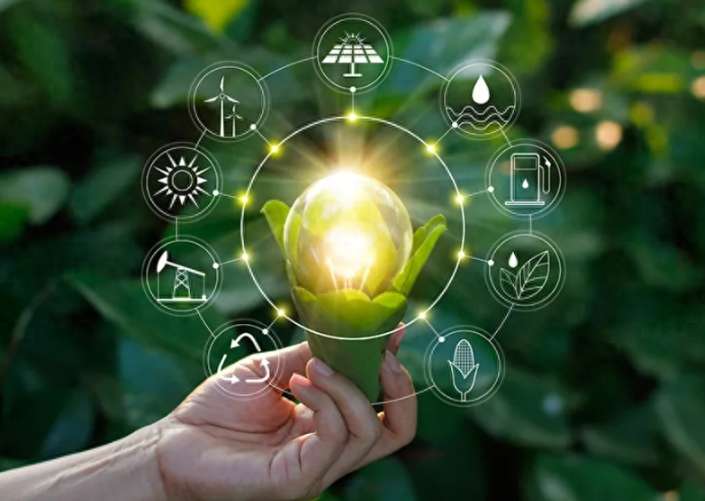Expanding New Horizons in the Power Battery Industry
Advertisements
The 2024 World Power Battery Conference recently took place in Yibin, Sichuan Province, representing a pivotal event in the global pursuit of sustainable energy and advanced battery technology. The conference, themed "New Quality Power, Creating a Green Future," brought together both domestic and international experts who engaged in discussions around the high-quality development of the global battery supply chain, innovation in battery technology, and the overarching goal of green energy transition. China's dynamic power battery industry has been on a growth trajectory, as evidenced by recent data released by the China Automotive Power Battery Industry Innovation Alliance, which reported a 25.3% year-on-year increase in battery sales from January to July 2023, totaling 380.3 gigawatt-hours.
Notably, China's power battery enterprises have captured a significant share of the global market, growing from a 48.8% market share in 2021 to 62.9% in 2023. This stark rise highlights China's increasing dominance in the sector, fulfilling more than 70% of the global demand for critical battery components such as cathodes, anodes, and electrolytes. At the heart of this natural expansion is the commitment to innovation, sustainability, and competitiveness within the industry.
The conference served as a platform to showcase innovations and technological advancements developed over the past year within the power battery and electric vehicle sectors. Attendees could explore an array of groundbreaking applications, from advancements in electric tools to innovative solutions targeting the low-altitude economy. This exhibition not only emphasized new market opportunities but also reflected the transformative capabilities of Chinese power battery technology in enhancing electric vehicle performance and affordability.
Senior officials like Xu Guojun, Vice Minister of the Ministry of Industry and Information Technology, underscored the significance of green technological advancements in the auto industry. He remarked on the emphasis placed on fostering a comprehensive industrial ecosystem that spans from raw materials to manufacturing, recycling, and beyond. By prioritizing the green transition, China is, undoubtedly, leading global efforts to reinvent the automotive landscape.
The conversation at the conference pivoted around technological innovation and market expansion. For instance, Meng Xiangfeng, Vice President of CATL, noted that lithium battery performance has significantly improved, with costs falling rapidly thanks to the increasing demand from various sectors, including electric shipping, aviation, and construction machinery. The discussion reflected a consensus that sustained progress in manufacturing techniques, core technologies, and collaborative advancements across the supply chain could dramatically influence future cost reductions and applications of battery technology.

Furthermore, prominent experts called for a concerted effort to pair technological advancements with sustainability measures. Sun Huajun, Chief Technology Officer of BYD’s battery division, emphasized that continuous innovations in manufacturing processes would further reduce battery costs, while also enhancing product reliability. This sentiment was echoed by Yang Hongxin, Chairman and CEO of Honeycomb Energy, who pointed out that while competition in the automotive industry is mounting, the focus remains on more economical technologies such as lithium iron phosphate batteries, marking a crucial pathway toward significantly decreasing costs without compromising performance.
As momentum builds, global attention turns to solid-state batteries, heralded as the next frontier of battery technology. Academia and industry leaders alike, including Ouyang Minggao from the Chinese Academy of Sciences, have pointed to the necessity of methodical development, underlining the importance of tackling challenges related to electrolyte formulations before advancing to electrode innovations. Solid-state batteries are widely recognized for their potential to revolutionize energy storage, particularly in enhancing safety and efficiency in various applications.
The shift towards integrating artificial intelligence (AI) into the battery development lifecycle was another critical takeaway from the discussions. Experts posited that AI could significantly alleviate time constraints in material research and development while also optimizing manufacturing processes. As Yang Hongxin pointed out, the intersection of AI with manufacturing could lead to remarkable improvements in production reliability and efficiency.
Moreover, the conference spotlighted the necessity of lifecycle management within the power battery industry, focusing on carbon footprint management from raw material extraction to end-of-life recycling. This comprehensive approach is pivotal for meeting global carbon neutrality targets. The importance of transparent supply chain data and systems has become increasingly essential as companies seek to manage and reduce their carbon emissions effectively.
This ongoing emphasis on circular economies in battery usage is underscored by the escalating quantities of retired batteries resulting from the burgeoning electric vehicle market. In 2023 alone, China saw over 580,000 metric tons of retired power batteries. Industry leaders such as Liu Jincheng, Chairman of EVE Energy, emphasized that the need for comprehensive recycling strategies, particularly for lithium iron phosphate batteries, is paramount. The inherent value in reusing materials not only leads to reduced costs but also supports broader sustainability goals.
Ultimately, the 2024 World Power Battery Conference has laid the groundwork for ongoing dialogue and collaboration within the power battery sector. The convergence of innovative practices in battery technology, the commitment to sustainable practices, and a holistic approach to industry challenges set the stage for actionable strategies to navigate the complexities ahead. As stakeholders work collectively towards overcoming obstacles and seizing opportunities, the future of power batteries looks promising—embodying the principles of sustainability, technological prowess, and competitive resilience. Through concerted efforts across various fronts, the industry is poised to play a central role in the global transition to a greener, more sustainable future.